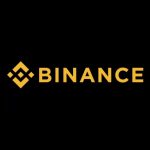Cryptocurrency exchange Binance halts trading after detecting irregular SYS trading activity

Binance -- the largest cryptocurrency exchange in the world -- temporarily halted all trading after it detected "irregular trading on some APIs".
As a precautionary measure, the exchange removed all existing API keys and asked users to re-create theirs from their accounts. The measure meant a suspension of trading, withdrawals and other account activity. The matter is related to the Bitcoin fork Syscoin which halted deposits and withdrawals, but Binance stressed that there had not been as hack and that its blockchain is safe.
Is enterprise blockchain right for your company?

No matter the industry, ensuring the security of all our digital transactions is everyone’s biggest concern. Aside from bitcoin and other cryptocurrencies, enterprise blockchain technology has the potential to overcome many current (and potentially future) hurdles digital transactions must face.
So how do organizations determine if blockchain is right for their business? How do companies know when is the best time to implement and start using blockchain? Before we answer these questions, let’s first provide some background on what blockchain is and how it works.
How blockchain is set to change the world

In most people's minds blockchain technology is associated with cryptocurrency, but it has potential to be useful in a whole range of other areas.
Consumer research company The Opinion Economy has produced an infographic to highlight the potential of blockchain in a whole range of areas.
Blockchain isn't just a ledger, it will help businesses boost revenue

Blockchain is a revolutionary technology, and it has the world’s business leaders talking. The distributed ledger system will change the way companies handle online payments, contracts and logistics.
But so far, there has been little conversation about how blockchain will help businesses increase their revenue. This is another benefit the technology will bring, as soon as businesses realize they can use it to buy and sell enterprise data without an intermediary like Amazon or Facebook.
Cryptocurrency exchange Binance launches new public blockchain -- Binance Chain

Just after offering up a bounty to track down the hackers who attacked it, cryptocurrency exchange Binance has announced the launch of a public blockchain.
Binance Chain, as it is known, is the exchange's vision of the future, and it will focus mainly on the transfer and trading of blockchain assets. Binance also announced that its own Binance Coin (BNB) will become a native coin, changing from the current Ethereum-based ERC20 token.
IMF chief wants to regulate the 'dark side of the crypto world' with blockchain and AI

Christine Lagarde, the head of the International Monetary Fund (IMF), has said that the blockchain technology behind cryptocurrencies could also be used to regulate them. She suggests that the IMF "fight fire with fire" in trying to address the "dark side of the crypto world."
While acknowledging the potential for the technology behind crypto-assets as being massively empowering -- particularly as a way to provide low-cost payment methods in poorer countries -- she says that cryptocurrencies also need regulation to avoid problems such as money laundering and funding terrorism.
Why blockchain is the real star of the cryptocurrency boom

Bitcoin remains one of the hottest financial topics of the last several years. The digital currency grew from less than $1,000 per coin at the start of 2017, to nearly $20,000 by the end of the year.
The buzz around Bitcoin continues to grow despite high volatility -- including a 50 percent drop between December and January -- and condemnation from figures like Warren Buffet who call it a "fraud." But how is it being used? And most important, what value does it really hold as an investment?
How blockchain is going to transform the real estate industry in 2018

The drama of bitcoin has taken the concept of the blockchain mainstream over the past five years. With prices going up and down (and up again), the mystery of its creator, the intrigue of bitcoin’s early Silk Road connections, and now institutional involvement from banks, hedge funds, and even governments, bitcoin has taken quite the journey.
Bitcoin may be the most well-known manifestation of blockchain technology, but there are countless other applications that have nothing to do with "crypto-currency." Real estate is a prime example, and in 2018, blockchain technology is going to transform the real estate industry in three key ways.
Mastercard opens blockchain API to developers

Mastercard has opened up its blockchain technology to developers who want to test their own solutions.
The company is looking to spur on development in the B2B space, saying that its technology is designed to increase speed, transparency and costs in cross-border payments.
IBM speeds up international payments with new blockchain-based service

IBM has looked to take the pain out of transferring currency across territories with the creation of a new cross-border blockchain payment solution.
Built in partnership with KlickEx Group and Stellar.org, the solution should improve efficiency and reduce the cost of global payments for both consumers and businesses.
Top banks teaming up for a blockchain-based syndicated loans platform

Seven of the world's top banking groups, including HSBC, ING and BNY Mellon are joining forces to create a platform for syndicated loans based on blockchain technology.
The blockchain service will be provided by R3 (a popular blockchain consortium) and Finastra (a UK financial software company). The service starts with Fusion LenderComm, an online marketplace that will use blockchain’s distributed ledger technology to reduce cost and improve on the efficiency and transparency of loans with multiple lenders. So far, the work in the syndicated loans was done manually.
Oracle announces blockchain-based enterprise service

During the Oracle OpenWorld event, Oracle announced its entry into the world of blockchain with a new enterprise-oriented service. It is fully-managed, and built on the open-source Hyperledger Fabric project.
Prior to announcing the project, Oracle joined forces with IBM in building a blockchain service.
Blockchain's usefulness extends beyond the financial market

Blockchain technology is a key disruption enabler of established and, most importantly, trusted broker industries -- financial services being the biggest and most lucrative trusted broker service in the world. Trillions of pounds are moved around the archaic global financial system every day and billions of businesses and private individuals are serviced by companies that make up the vast industry. Still heavily reliant on manual processes, though dressed in a digital façade, finance system productivity is anchored with process delays, ever-rising expenses and is a relentless target for crime and fraud.
In an attempt to solve these ever-growing issues, blockchain, originally developed as the technology behind cryptocurrencies like Bitcoin, has been heavily invested in over the last few years. Investment to date has been primarily targeted at finance-focused blockchain start-ups and this focus of investment has lured many into the belief that the technology only has real potential in the world of finance.
Where can blockchain add value?

Blockchains and their use cases have evolved significantly since the advent of cryptocurrencies such as Bitcoin and Ethereum. And for a few good reasons. The fully decentralized system lowers transaction costs, improves record-keeping and enables complete transactional traceability. These benefits make blockchains ideally suited for the hyperconnected digital era -- one in which trust boundaries between devices, networks, applications and users are being constantly redefined.
But what makes blockchains credible? A blockchain’s network participants are bound by certain rules, which are continuously validated by peers. Several built-in mechanisms, including proof-of-work, proof-of-stake and consensus-based decisions ensure trust is maintained and strengthened. The transaction ledger is open to participants for analysis and auditing purposes at any time, with data being replicated across multiple participants. Blockchains eliminate the need for a central or federated trusted entity -- the middleman -- which results in the democratization of trust. This is why blockchain has been dubbed the Trust Machine.
New blockchain platform helps cut online ad fraud

While digital advertising is increasingly popular, it suffers from a lack of trust due to fraud and, despite predictive technology, has relatively low accuracy. As a result, a high percentage of spend gets wasted.
Advertising ecosystem Papyrus, launching today, aims to bring together users, publishers, advertisers and developers of decentralized applications in a new way that permits them to interact in an environment with built-in fraud prevention and which offers an unprecedented level of control.
Recent Headlines
Most Commented Stories
BetaNews, your source for breaking tech news, reviews, and in-depth reporting since 1998.
© 1998-2025 BetaNews, Inc. All Rights Reserved. About Us - Privacy Policy - Cookie Policy - Sitemap.